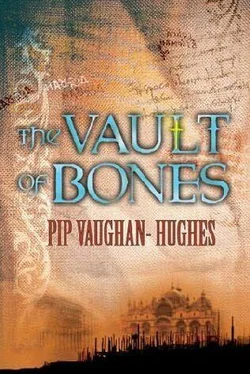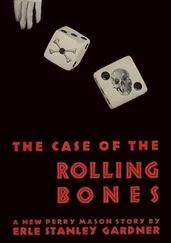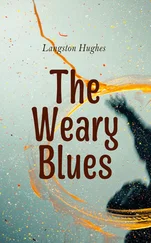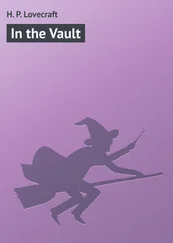Pip Vaughan-Hughes - The Vault of bones
Здесь есть возможность читать онлайн «Pip Vaughan-Hughes - The Vault of bones» весь текст электронной книги совершенно бесплатно (целиком полную версию без сокращений). В некоторых случаях можно слушать аудио, скачать через торрент в формате fb2 и присутствует краткое содержание. Жанр: Исторический детектив, на английском языке. Описание произведения, (предисловие) а так же отзывы посетителей доступны на портале библиотеки ЛибКат.
- Название:The Vault of bones
- Автор:
- Жанр:
- Год:неизвестен
- ISBN:нет данных
- Рейтинг книги:4 / 5. Голосов: 1
-
Избранное:Добавить в избранное
- Отзывы:
-
Ваша оценка:
- 80
- 1
- 2
- 3
- 4
- 5
The Vault of bones: краткое содержание, описание и аннотация
Предлагаем к чтению аннотацию, описание, краткое содержание или предисловие (зависит от того, что написал сам автор книги «The Vault of bones»). Если вы не нашли необходимую информацию о книге — напишите в комментариях, мы постараемся отыскать её.
The Vault of bones — читать онлайн бесплатно полную книгу (весь текст) целиком
Ниже представлен текст книги, разбитый по страницам. Система сохранения места последней прочитанной страницы, позволяет с удобством читать онлайн бесплатно книгу «The Vault of bones», без необходимости каждый раз заново искать на чём Вы остановились. Поставьте закладку, и сможете в любой момент перейти на страницу, на которой закончили чтение.
Интервал:
Закладка:
'That is true. We wear Frankish skins’ the Captain replied, his mouth twisted in disgust. 'But underneath..He spat over the side. I understood. Michel de Montalhac, as he watched the desolated lands drift by, and smelled the scents of neglect and decay, was doubtless seeing his own country. A crusade had laid waste to it, as it had to this country, and his folk had been destroyed or enslaved. I thought of Anna and how her face would tighten with rage whenever she spoke of the crusaders who had taken Constantinople – 'Dandolo's wolves', she had called them, when she was feeling generous. More often she would begin to swear in dense, rich Greek which I could not – perhaps dared not – translate. At such times I felt she saw my Frankish skin and not the man beneath; but then, I was no Greek, after all. The gulf between East and West, barbarian and Roman, Latin and Greek would yawn darkly, but always to be bridged, in the end, with kind words and a lovers touch. But now, as I was slowly realising, I had crossed that gulf. I was in Anna’s world now, and I was a stranger.
The sun was almost setting as the horizon finally resolved itself into shapes that revealed the hand of man. A low spit of land jutted down from the north. It seemed hunch-backed, but as we pulled closer I saw that the hump was a great building, and I knew at once that I beheld the Hagia Sophia. Now we were passing more great fortifications on the banks of the sea, and these were manned in earnest, although they too were beginning to crumble. The water was growing busy: fishing boats were passing us, heading out to their night-time hunting grounds. I saw many great ships of trade: galleys like ours, and round-bottomed northern ships too. And here and there, prowling like slow but dangerous beasts, ships of war cruised or rode at anchor. A pilot had sailed out in a fast little Greek skiff, and now he and the Captain argued loudly over some complication wrought by the harbour-master. The oarsmen were cursing as they were told this instant to speed up, the next to slow down. I was enjoying the spectacle and turned my back on the approaching city for a while. But then a particularly loud cry from the pilot's mate, who had taken up his position in the bows and was cursing some unfortunate fisherman, made me turn back. Nothing – not Anna s talk, certainly not my own dreams – could have prepared me for what I saw.
The sun was setting behind us, and every brick, every roof-tile of the city before my eyes was bathed in honeyed light. It picked out towers, steeples, domes, turrets, balconies, columns, flying flags and gonfalons, proud standards. And everywhere the gorgeous light was swallowed by black hollows of ruin. The city, as I have said, stands upon a promontory, and we were sailing around it, out of the broad Sea of Marmara and into a narrower estuary, the Golden Horn. From Anna I had learned that, like Rome itself, Constantinople was built on seven hills, but they are low and the great mass of Hagia Sophia looms over everything. The waterfront I saw now stretched away seemingly for miles in either direction, and was studded with jetties and wharfs that in their turn were crowded with ships and boats of every size. But beyond the wharfs something was terribly amiss. As, puzzled, I let my eyes roam from left to right and back again, I saw a mighty wall, high and strengthened with towers and battlements. But it was the ghost of a wall, for it was much breached and here and there it had been smashed as if with a giant's hammer. Beyond it, where the ground began to slope upwards, I began to make out great buildings, or rather their shells. They stood, some roofed, some open to the skies, like the ruins of Rome; save here it was plain that these buildings had been in use until recently, and not abandoned in some remote antiquity. Gutted hulks stood at intervals, and between them lay open spaces, which by the way they lay in shadow and ate up any light that fell upon them I realised were nests of ruin, tumbled and burned wastes of stone and charred wood. The ruined buildings were large and monumental, still clad with the remnants of marble. Some were roofed like Roman temples of the old times and some were domed in the Greek manner. Closer to hand, and standing proud and clean, was an edifice that stood out from its fellows in its newness and the resounding strangeness of its architecture.
It was not so strange really, merely a large church of the sort one might find in any well-to-do country town in Italy. It was new-built, and the ashlar of its walls gleamed, as if to confirm that here was a building that truly deserved the attentions of the setting sun. But it appeared to have no relation whatsoever to the tottering piles of stone that surrounded it. For my first sight of Constantinople had reminded me of nothing less than a rotten old jawbone, detached from its skull and mouldering alone in some charnel house. And this Frankish church – for I suddenly had no doubt it was exactly that – seemed like a new tooth that, miraculously, obscenely, had sprung up amid the death and decay. Now that we were drawing closer, I saw more new buildings: here a campanile, there a strong-house with the fish-tail crenellations I had seen often in my crossing of Italy. The banners that flew everywhere were all Italian, too. I saw the lily of Florence, the white cross and red field of Pisa, and everywhere, seemingly vying for every high place, the lions of Venice and Saint George of the Genoese. Our own ship had run up a gonfalon which held a cross of gold on red, with crosses in the four corners, and I saw this device echoed here and there, on one great building away to the north, and another, huge and much knocked about, just to the south. I had been wishing with all my heart that Anna could have been with me, but all of a sudden I felt profoundly grateful that she had not lived to see this. For over the whole city, from a mast atop the titanic dome of the Hagia Sophia, the crossed keys of Saint Peter, blazoned on a huge white banner that flapped like an ogre's bedsheet, proclaimed their dominion.
Being an Apulian ship and therefore owned and manned by supporters of the emperor, the Stella Maris docked at a Pisan wharf, which the captain called a skala. The Pisans were in those times allied with the emperor, unlike the Genoese and Venetians, although I noticed that the various communities seemed to live all mixed together here. How strange it was that the poisonous division between supporters of emperor and pope, or Ghibellines and Guelfs as they called themselves, was causing war and murder back in Italy, but here in Greece it seemed to hold little weight. Probably, I told myself, they were all too busy making money to kill each other. It was getting dark, and rather than cast about for a suitable inn, the Captain decided to accept the harbour-masters offer of hospitality and put up for the night at the Pisan trading-house to which our wharf was attached. There were many of these houses, all with their skalai, packed tightly between the water and the walls, and as the dinner hour approached fires and lamps were being lit up and down the shore. I was impatient to enter the city itself, but as the Captain pointed out, we would be better served by good food and a peaceful sleep. Tomorrow we would find our own lodgings, and seek an audience at the palace. And the Pisans were so friendly, and their food smelled so inviting, that it was far easier not to resist. So we were shown to a room, plain but comfortable, and later shared a meal that, after five weeks of ship's food, could just as well have been manna. The dishes were so savoury, and the company so lively, that it almost seemed churlish to wonder why, after an evening spent at the very centre of the Greek world, I had yet to hear a single Greek voice. But I set these thoughts aside and let the food – richly spiced with pepper and other spices fit to ransom a prince – and the good Tuscan wine lull me, and as the Captain had hoped, we both slept like the dead. But before I laid down my head I put my head out of the small window and craned to look up at the great walls of the city. A little moonlight glanced off the cut stones and sank into the gashes and wounds of siege and time. They had not kept out the robbers, these walls, and perhaps it was their penance to be reduced to a home for ivy and pigeons. Well, tomorrow I too would be inside, yet one more Frankish robber. I let out a sigh, and it was echoed by the breeze stirring in the caper shrubs that hung, lax and abandoned, from the stones above. This city is no longer defended, it seemed to whisper: it bowed down long ago. Downcast, I took myself off to bed, and thought troubled thoughts of Anna before sleep took me.
Читать дальшеИнтервал:
Закладка:
Похожие книги на «The Vault of bones»
Представляем Вашему вниманию похожие книги на «The Vault of bones» списком для выбора. Мы отобрали схожую по названию и смыслу литературу в надежде предоставить читателям больше вариантов отыскать новые, интересные, ещё непрочитанные произведения.
Обсуждение, отзывы о книге «The Vault of bones» и просто собственные мнения читателей. Оставьте ваши комментарии, напишите, что Вы думаете о произведении, его смысле или главных героях. Укажите что конкретно понравилось, а что нет, и почему Вы так считаете.









